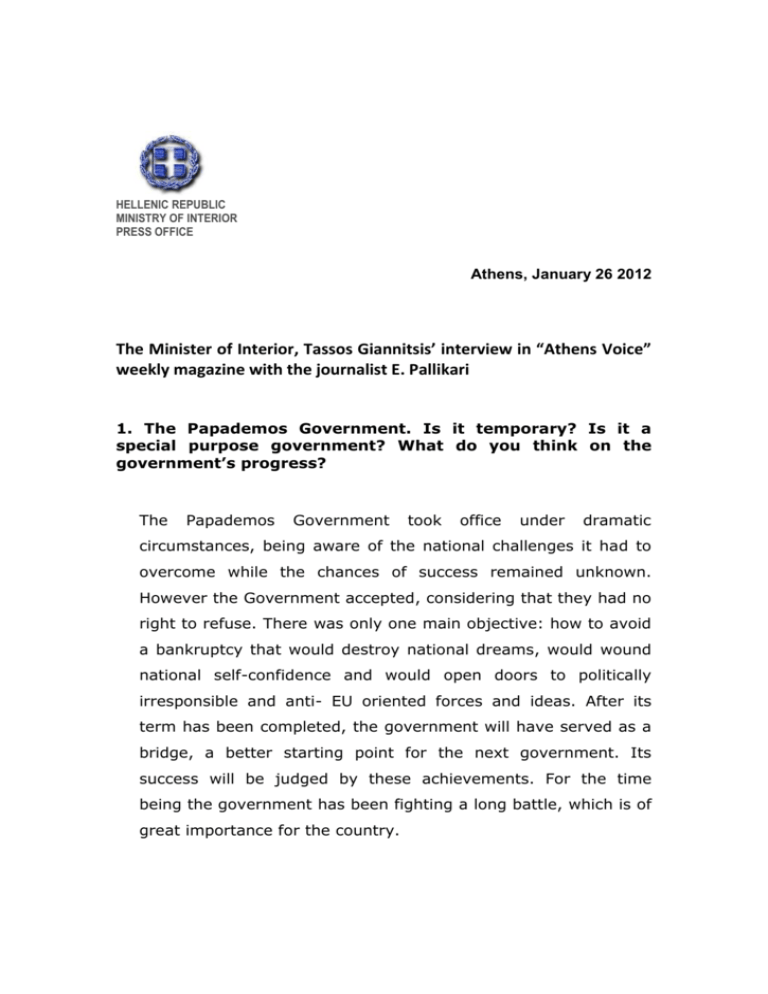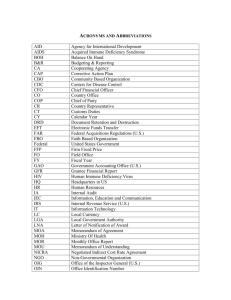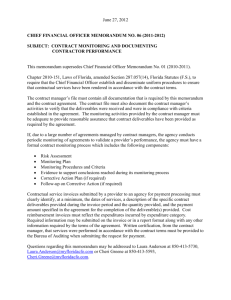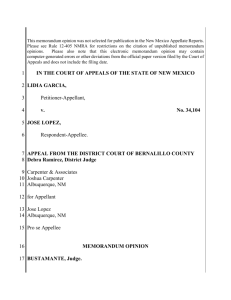Interview in “Athens Voice” weekly magazine
advertisement

HELLENIC REPUBLIC MINISTRY OF INTERIOR PRESS OFFICE Athens, January 26 2012 The Minister of Interior, Tassos Giannitsis’ interview in “Athens Voice” weekly magazine with the journalist E. Pallikari 1. The Papademos Government. Is it temporary? Is it a special purpose government? What do you think on the government’s progress? The Papademos Government took office under dramatic circumstances, being aware of the national challenges it had to overcome while the chances of success remained unknown. However the Government accepted, considering that they had no right to refuse. There was only one main objective: how to avoid a bankruptcy that would destroy national dreams, would wound national self-confidence and would open doors to politically irresponsible and anti- EU oriented forces and ideas. After its term has been completed, the government will have served as a bridge, a better starting point for the next government. Its success will be judged by these achievements. For the time being the government has been fighting a long battle, which is of great importance for the country. 2. Should we go for elections? Is it necessary to extend the government’s mandate together with a more effective operation scheme? What really matters politically, before or after the elections, is not to be once again the losers. Whether the mandate of the government should be extended I can not tell, no one can tell. Only reality will tell. Now, whether, by the time of elections, we will keep ourselves busy with addressing these tragic events and the question of elections or whether we will deal with our tragic condition after elections is a decadent dilemma. 3. Was the Memorandum a sheet anchor or a curse for the country? When crisis strikes, you must have a warship design. You have to prepare your plans for the next 4-5 years in relation to the main problems: finance, employment- unemployment, investment, competitiveness, and social problems. So the government and the society may know how to move and act. The crisis began in the autumn of 2007 and the memorandum came in the spring of 2010. The memorandum is a plan against the crisis with both correct points and weaknesses. Let’s have a look at the way we implemented the memorandum. When you are not determined to clash on the political level, you have to pay a price. 4 PSI and approval of the loan agreement – or a new memorandum, according to some people. Notations, which hide large tensions and potential social explosion. Could it be another way? Would the return to the drahma be the inevitable result of a deadlocked path? There is always another way and you can reach a deadlock, when powerful forces manage to manipulate naivety or ignorance to their advantage. However, there are important social forces ready to fight for a better future for the country – for our country. There are also forces, which offer nightmare visions as credible perspectives. Having resisted for decades any reform, these forces still have the same bankrupt concepts, which brought social cohesion and economy into their knees. They want to go back to the drachma and to underground political activities. 5. Reducing wages and abolishing the 13th and 14th salaries is it a solution at this stage for the country? I will not go into an issue which is the subject of critical negotiations. I will only note that the debate is conducted in the same footsteps as the debate on the insurance issue did ten years ago. What competitiveness means, the several reductions in wages and unemployment, as well as a large number of problems are hard to understand for those who dogmatize about the one side or the other. 6. Unemployment is growing and liquidity has vanished. Tell me if there is any hope for recovery… Obviously, there is not. Not with frivolous practices either. It is obvious, however, that we lack the driving forces of development and we need to generate them. In the middle term, the success of stabilization policies will be co-determined by our ability to create growth. We need consistent and targeted policies from the part of the state and the business sector in order to enhance productivity, expand the manufacturing base with new products and services, introduce organizational, institutional and qualitative changes or achieve operational improvements in business. I can not enter into details. However, I would like to underline that there is one structural reform which will determine the success of all the other ones: our capability to change our minds, to adopt a flexible approach against challenges and to act pragmatically. 7. You have recently stated in Parliament that “destructive obsessions were transformed into ideologies” in the society. Do you insist on this position? Yes. They were transformed into ideologies, allowing an entire set of policies supposed to serve broad social strata to be legitimized, while these options have repeatedly turned against both ordinary people and the country, and created increasing debts that must be paid off. For decades we had been taking the easy and carefree road, choosing to postpone payment for future years, at the expense of younger generations and of ourselves. It is about a postponed payment, which is creating new and powerful inequalities. In essence, we had been living in increasing debts and incredible greed satisfying current needs at the expense of our future having the illusion that we are smart, capable and productive. We certainly were, but not as much as we thought. 8. In 2001 as Minister in the Simitis Government you had made proposals for changing the insurance system, which were fought against and finally annulled. How would things have been for us today if these proposals had been adopted? The way they will be tomorrow, if we understand what we need to do today, in order not to have the insurance issue repeated on other critical issues. 9. What about the “black hole” in the political parties’ finance? Where does their indebtedness lead them? How can political parties deep in debt with “degrees” in mismanagement profess the proper management of finance and the salvation of the country? Why do they receive a public funding – and, what is more, they got more money in 2011 than in 2010. The issue is real but it will not be dealt with in a populist manner or in terms of political sensationalism. Political parties are the institutions of democracy and they are funded in all countries. Any weaknesses, excesses, failures or pathologies should be addressed. I asked for a process to be started in parliament and I am waiting to see if it leads to proposals for changes. If yes, I will take legislative action if no, the issue will be dealt with by the next government. I can not make any amendments without the parliamentary consensus. I shall not quarrel with anybody either, to ingratiate myself with the public opinion. Of course I will continue to voice my opinion. 10. Does Europe have a future? Does Greece have a future inside Europe? Throughout its life- decades of life- the European system has enjoyed considerable success. In its course it has had tremendous results as well as failures or problems, such as the current crisis which must be addressed in a creative and synthetic way. The success of our efforts, as well as the success of efforts made by other countries in crisis, depends upon ourselves, and on the strategies followed in the Euro zone. After three years of trials and errors in an unstable environment, the European leaders should seize the opportunity and set a new course in the Euro zone. This will be for the benefit of Europe, of the countries in crisis and of the world system. Greece may choose to remain in the Europe’s core or leave. Each choice has its own tremendous consequences. However, we must keep in mind that throughout our history, we moved on when we joined Europe, not when we were isolated. Concerning the country’s current plight, this should not be examined within the framework of Europe. Let us look for once in the mirror. The truth is painful. Yet it offers catharsis, empowering us to follow a different way.




